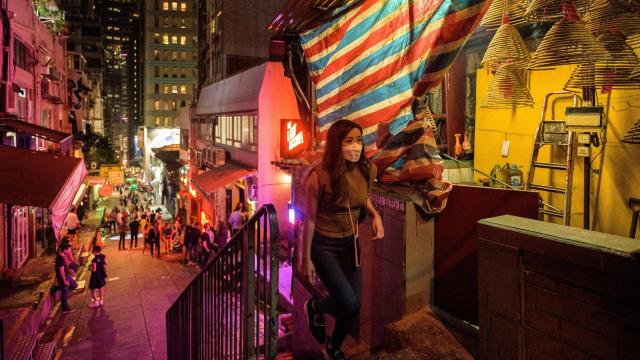Hong Kong might be forced to throw out millions of expiring Pfizer-BioNTech covid-19 vaccine doses within the next three months, according to a member of Hong Kong’s coronavirus task force. Hong Kong secured enough vaccine doses for its population of 7.5 million, with both Pfizer vaccine and China’s Sinovac, but has still struggled with low vaccination rates.
“We only have maybe a three month window to get vaccinated with [Pfizer-BioNTech],” Dr. Thomas Tsang, a member of Hong Kong’s coronavirus task force, told local public radio program Hong Kong Today on Tuesday.
“After that, it may be much more difficult and the whole world is scrambling for vaccines,” Tsang added.
Tsang noted that less than 20% of the population of Hong Kong has gotten at least one dose, due in large part to the relative low rates of infection in the region. People simply don’t think they need to get the vaccine if there isn’t covid-19 spreading widely in the community.
There’s also vaccine hesitancy in the region because people believe they can wait to see if others experience side effects, something that has gotten a lot of coverage in Hong Kong media.
“The false conception about safety is quite unfortunate,” Tsang said, referring to media stories about serious side effects from the coronavirus vaccines, something that’s incredibly rare.
Even health workers in Hong Kong aren’t getting vaccinated at sufficient rates, as the AFP notes, with only about a third of eligible doctors and nurses getting the shots.
“We are quite lucky in that right now we don’t have a covid-19 outbreak,” Tsang said. “But the timeline in Singapore teaches us that we can get into trouble quite easily.”
Singapore has seen a surge in new cases that health officials haven’t been able to properly trace to a known source. Singapore and Hong Kong were forced to cancel a so-called travel bubble due to Singapore’s recent infections.
Ironically, countries that did relatively well during the first year of the covid-19 pandemic are now areas that are struggling to get their people vaccinated. And that makes those same regions vulnerable to fresh outbreaks as the disease still ravages much of the world.
Australia, for example, has seen tremendous vaccine hesitancy, a result of both low infection rates and a bungled vaccine rollout by the Australian government. Australia has reported 29,955 covid-19 cases and 910 deaths since the start of the pandemic, but has administered just 3.6 million doses of covid-19 vaccine to its population of roughly 25 million people.
And Australia is starting to see how that could result in very poor outcomes for the remainder of 2021. The Australian state of Victoria introduced new covid-19 restrictions on Tuesday after four new cases were discovered around the city of Melbourne — an up-and-down regime of restrictions that Australians have started to get used to as single-digit outbreaks come and go.
The world won’t be able to truly end the covid-19 pandemic until a majority of the world is vaccinated. And while places that were hard-hit are now getting vaccines out quickly, like the U.S. and UK, countries that didn’t suffer many deaths from covid-19 are now the ones who need a swift kick in the arse to get their vaccination programs moving. Otherwise you wind up with a lot of expired vaccines on the shelf that should’ve gone into people’s arms — the exact scenario that Hong Kong now faces.
